Protestant and Catholic Beliefs Series Conclusion
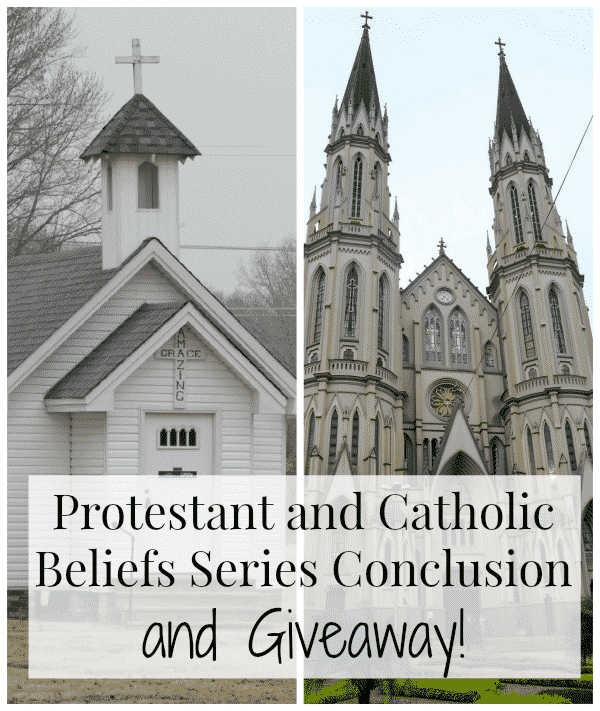
This post is the conclusion post to a series entitled Letting God Lead: My Journey Through Protestant and Catholic Beliefs. If you are new to this site or this series, I HIGHLY encourage you to check out the rest of the series as well. *This post contains affiliate links.
A little over a year ago, I began a journey–a journey to find out the truth behind Protestant and Catholic beliefs–and what a journey it has been!
I’ve read countless books and articles, taken classes and talked with priests, debated apologetics, attended mass, listened to your stories, and shared my own. I was even on the radio! (Click here to listen to the recording.)
We covered a LOT of ground in this series, and I hope it’s true to say that we all learned a lot.
- In the series introduction, I shared my story: How I grew up (and still am!) a very dedicated, Bible-believing Christian, and how I got started on this journey in the first place.
- Next, I did my best to dispel 10 Common Catholic Myths in the hopes that everyone following along would be able to do so with an open and informed mind.
- We discussed the Eucharist, and I presented solid evidence concerning whether or not it is the true Body and Blood.
- We discussed “Sola Fide” and whether faith alone is enough or if we need something more.
- We discussed “Sola Scriptura,” talking about important issues such as tradition and the authority of the church, the Bible and the first century apostles.
- We discussed the history of the Catholic church and evidence for/against the Apocrypha.
- I offered some insights on what Catholics really believe about the Pope, priests and confession and why.
- And then I did the same thing with the issues of Mary, Saints and Statues.
- We took a look at Biblical and historical evidence for/against Infant Baptism.
- As well as Biblical and historical evidence for/against Purgatory and Indulgences.
- And then last week, we capped off the series with a lighter topic: Why do Catholics do all the weird stuff they do?
Of course there will always be more to say and more to cover, but hopefully this series has been enough to get you thinking and researching for yourself, instead of simply blindly believing what you’ve been taught from birth. Because when I examined what I’d always been taught, I found out a lot of it was wrong. My teachers were wonderful people, but so many of the principles they taught me simply were not Biblical. I don’t want you to make the same mistake.
Whether you are Protestant or Catholic–honestly, I could care less. Maybe I should? But it really doesn’t matter to me. What matters to me is that you have researched the issues yourself, that you know what and why you believe, and that you can confidently defend your beliefs to others. That you believe on purpose because you really know it to be true–not that you believe by default because someone told you something and you didn’t bother to fact check for yourself.
So now, for the moment you’ve all been waiting for–what did I decide???
[thrive_leads id=’23166′]
Is the Eucharist the Real Body and Blood? Yes, I believe it is.
From the language Jesus used to the Jewish peoples’ reaction to the early Church’s response–all of the research I’ve done so far leads me to believe that it has to be real. (Find the information that lead me to this decision in my post: Is the Eucharist Really Just a Symbol?)
Is Faith Alone Enough? No, I believe God expects something more.
To be very clear: Both Protestants and Catholics agree that you cannot earn your way into Heaven through works. We are saved because of God’s grace, which allows us to have faith. But in light of the verses I shared in my Is Faith Alone post as well as the following two arguments, I have to agree that yes, you do need faith, but that you can’t just stop there. Once you are already “saved” (or “justified”), your life needs to reflect that. I think, deep down, many Protestants would agree. You can’t just say a prayer and then go on your merry way.
Argument #1: Protestants say that nothing we DO can get us to Heaven. Yet, the very act of choosing to believe is a verb–something we DO. God doesn’t force us to be Christians against our free will. We choose it. So we can’t reject ALL works, because believing is a work itself.
Argument #2: If simply believing were enough–well, even satan and his demons know that Jesus is God. They know He is the only way to Heaven. If all you had to do was believe–wouldn’t that make satan a Christian? Yet, I’m pretty sure we would all agree that’s preposterous. Why? Because he certainly doesn’t act like a Christian! He doesn’t repent, or submit or act like a Christian–all things Christians DO. So simply believing in Jesus can’t be enough.
So in light of alllll of the verses I listed in my Is Faith Alone Enough? post (check them out!) combined with the two arguments above, I can only conclude that we HAVE to play a role somehow. Faith alone is not enough. I have NO IDEA where that line is–concerning what we have to do, how much we have to do, etc, but I have to believe that something more is required.
Who has the Ultimate Authority–the Bible or the Church? The Church… I think? But which one??
Based on the findings I shared in Who Has the Ultimate Authority? A Biblical Look at Sola Scriptura, I strongly believe that the Bible was never meant to be a comprehensive how-to guide that covers every topic. It IS infallible on the issues it covers, but it doesn’t cover everything, and it leaves a lot of things open to (mis)interpretation. So, while I am definitely very much a Bible-believing Christian, I have to agree that we need more than just the Bible; we need the rest of the teachings and history–which we *should* find in the church.
However, while I totally understand and support the need for and appropriateness of having the church be our authority (under Christ of course!), I did not see any evidence that points to the *Catholic* church having to be that authority, instead of the church in general.
Catholics believe that the Catholic Church we have today is the same church the Christian churches had in the first century, but is it? How do we know they didn’t get off 5 degrees somewhere and end up way off course today? How do we know they clung to the right things? The pharisees thought they were experts at keeping the law, but they got in big trouble when Jesus came to town. I mean this in a polite and sincere way, but how do we know the Catholic Church hasn’t done the same thing? This has been my main nagging doubt this entire time, and it has yet to be resolved.
(And yes, I know that Jesus would send the Holy Spirit to guide the Church and keep her from error, but what proof is there that that verse is talking about the *Catholic* church–not the church as a whole or a different denomination?)
So…. I like the idea, but I haven’t been able to fully accept it yet. (Read more in my post: Who Has the Ultimate Authority? A Biblical Look at Sola Scriptura)
Is the Apocrypha Scripture? Don’t ask me; I have no idea.
Did you see the chart at the end of my History of Christianity post?? All of the information is hopelessly contradictory!! And while I can throw out several of the arguments on one side or the other (the books were found with the Dead Sea Scrolls–we checked!), I still see very logical points on both sides. So quite honestly, I have no idea. I am ever so slightly leaning towards the Catholic perspective since they were in the Bible for hundreds of years before Martin Luther took them out, but I could easily go either way. I simply don’t know at this point.
Concerning Priests, the Pope and Confession: Makes Sense to Me
I like the idea of having a God-led priest instead of every person misunderstanding the Bible for him or herself. Obviously with everyone being able to come up with whatever interpretation they want, we aren’t doing a very good job. (30,000 Protestant denominations!) Obviously not to say we shouldn’t think for ourselves (this whole series is so that you will!), but having one trusted standard sure seems nice right about now! (But is Catholicism it? I don’t know!)
I don’t have a problem with the pope being infallible (I don’t know if he IS; I do believe it is possible). I’ve always liked the idea of confession and thought it was a good practice. I do believe priests could have the power to forgive sins. It does seem a little unnecessary to me, but that’s probably just my upbringing. I don’t have any theological problems with any of it. Logically, it makes a lot of sense.
Concerning Mary, Saints and Statues: I Still Think it’s Weird… But There are Much Worse Things It Could Be…
I do NOT believe Catholics worship Mary, saints or statues. (Well, maybe some do in other countries, but your average American Catholic–no.) I personally think some Catholics pay them more attention than they maybe ought, but then again, you’re going to have people mess things up in any religion.
Mary: In all honesty, I simply don’t “get” all the hubbub about Mary. Yes, she said yes to God, but people say yes to God every day. Even if she is the most important human in history (and I don’t have a problem with that)–she’s still human. Even if she were sinless (and I don’t have a problem with that either)–it was because God preserved her from it, not because she did anything herself to deserve it any more than the rest of us. I understand that Mary is supposed to point us to Jesus, but I can’t help but feeling that, for some people, all the Mary stuff has become a distraction.
Saints: I don’t know if I feel particularly compelled to pray to any Saints, but I don’t necessarily have a problem with the practice **when done according to official Catholic doctrine.** I don’t think it’s really necessary, but I don’t think it’s sinful, either.
Statues: As long as Protestants have nativity scenes, they can’t point fingers at Catholics because it’s the exact same thing. I have zero problem with statues (when used appropriately).
(For more information on this topic, please check out my post: What Do Catholics Really Believe About Mary, Saints and Statues?)
Is Infant Baptism Scriptural? I’d personally rather not wait.
I don’t know that Scripture is incredibly clear either way, and I say this because I can easily make good, Scriptural arguments for either side. Plus, when you look at early Church history, they did it both ways. BUT since it can’t hurt and it can potentially offer many huge benefits, according to Catholics–why wait? We baptize our babies as infants.
(Read more about the subject in my post: Infant Baptism or Believer’s Baptism? Which is Correct?)
Are Purgatory and Indulgences Scriptural? Probably
As I was researching for my post on Purgatory and Indulgences, I was surprised to find so many verses that *could* reference Purgatory. And honestly, the teachings make sense. I don’t know if I believe in them for 100 sure at this point, but I don’t have a problem with either of them. (Read more in my post: What is Purgatory? What are Indulgences?)
So What Did I Decide?
I decided I wasn’t ready to become Catholic at this point. We attended all of the learning type classes and then dropped out before the rites. We still attend Mass every Sunday.
The reason I chose to drop out is because when I looked up what the rites of sending and election are (the “ceremonies” we would go to next), I read that I would be asked “Do you believe all that the Catholic church teaches to be true?” And my sponsor (my husband) would have to vouch for me.
Well, I can’t in good faith go up in front of an entire church and declare that I believe everything the Catholic Church teaches is true. I’m not saying it’s not. I’m saying: I don’t know. I still have questions. I’m still learning. I’m still seeking.
I haven’t read the entire Catechism yet. I haven’t read all of the Apocrypha yet. How can I state I believe they are true if I don’t know what is in them? At this point, I can’t.
I’ve changed my mind on a LOT of really important things–the Eucharist, confession, praying to the saints… I’ve learned a lot and I’ve come a long ways. But God isn’t finished with me yet.
So the series is done for now, but that doesn’t mean our journey has to be over. Go back and read through the posts again, really mulling over the points. Get and read the books above. Talk to your priest or pastor. Talk to me; I’d love to hear from you!! Don’t let your journey stop here.
Here’s a list of topics we’ve covered so far, in case you still need to go back and catch any you missed.
The Day I Realized My Religion Got it Wrong
10 Common Catholic Church Myths that Critics Believe
Is the Eucharist Really Just a Symbol?
Who has the Ultimate Authority? A Biblical Look at Sola Scriptura
A Brief Look at the History of Christianity
What All Christians Should Know About Priests, the Pope and Confession
What Do Catholics Really Believe About Mary, Saints and Statues?
Infant Baptism or Believer’s Baptism? Which is Correct?
What is Purgatory? What are Indulgences?
Why Do Catholics….? Honest Answers to Your Burning Questions
Protestant and Catholic Beliefs Series Conclusion
So that’s an update on me–how are you doing? What questions are you still wrestling with, if any? Let’s discuss!

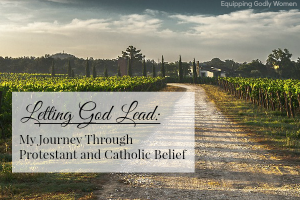
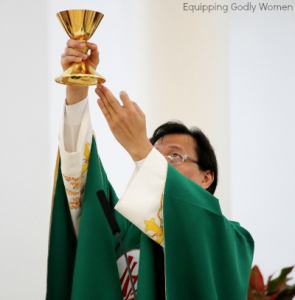
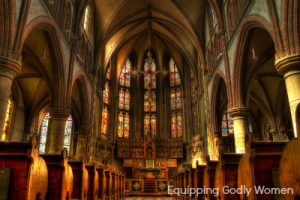
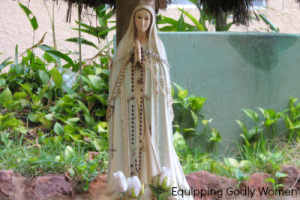
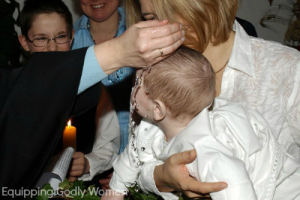
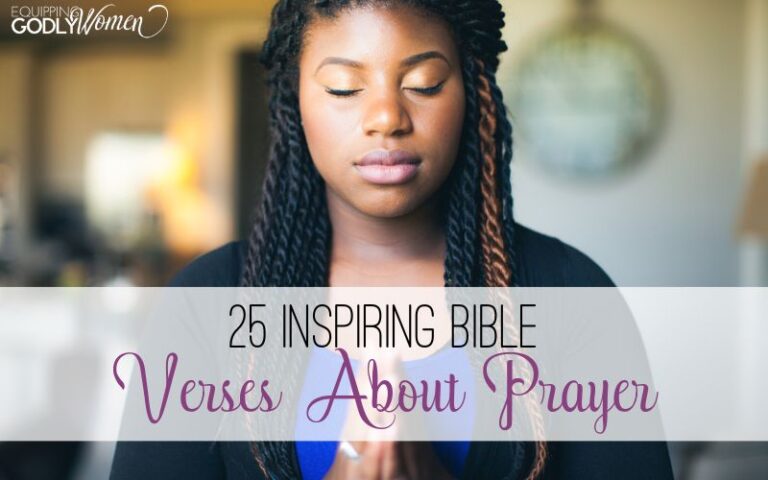
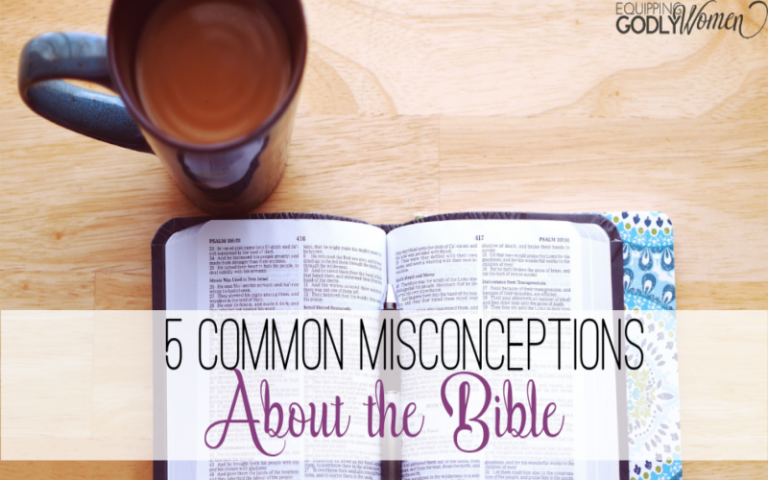
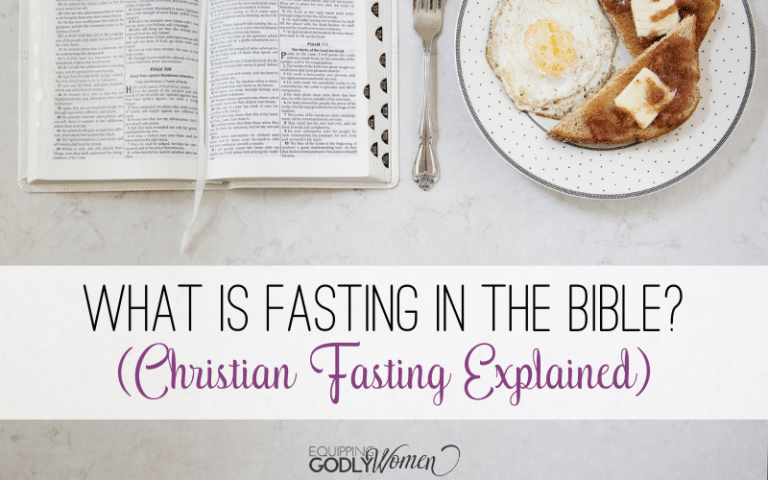
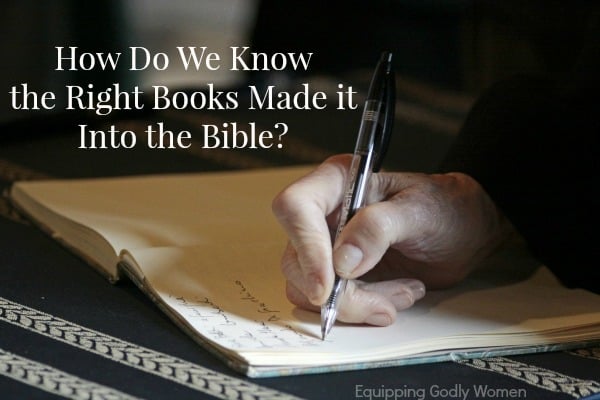

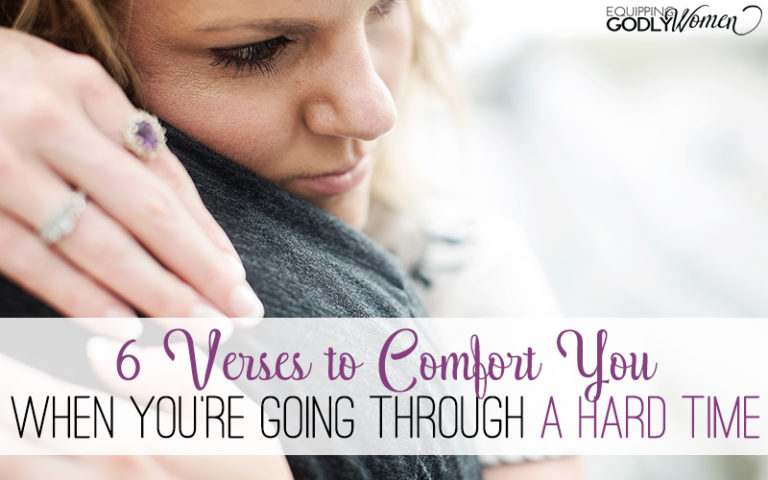
I have loved this series! As a girl, I went to mass with my grandmother often. I do miss mass, and I think that I am essentially Catholic in beliefs, but my husband and I attend a Methodist church (which is the denomination I was raised in). My husband attended a non-denominational church as a child, so Catholic is very foreign and uncomfortable to him. It is important to me that the whole family attends church together, so I haven’t tried to convert (yet), but I do often feel pulled to the Catholic church.
That is a very tricky situation! It’s important to me that we all attend church together too, which is why I am going to a Catholic church with my husband. So I totally get that! That doesn’t stop you from learning more about it on the side however, and attending a daily mass on occasion if you could ever make it just to see what it is all about 🙂
I have really enjoyed your series and will come back to read the next one you’re talking about (I’m not a wife and a mom yet so most of your other posts don’t really apply to me yet).
I can only assume how difficult it is to convert to a different religion, finding out that what you’ve belived all your life doesn’t make that much sense anymore…
There was a time when I had a crisis of faith, but I was able to find very believable and logical explanations in the Catholic church for what I didn’t understand or for those things that seemed weird to me.
It’s a good thing that you’re taking this seriously, I hope you will continue with this path and eventually find the Truth.
My opinion on how do we know which church was Jesus talking about when he gave the church authority:
There is no way he was talking about the church as a whole, because Christians have fell apart into so many denominations that often don’t have much in common. Yes, they all see Jesus as their savior, but they differ on VERY important things to the point where some denominations have more in common with Buddhism then with other Christians.
Also, Catholic church stayed the same through centuries. Sure, there were some very dark times (like the Crusades and inquisition) but the Chruch always “recovered” and came back to the right path. Those who decided to divide from the Catholic church without exeption ended up falling apart into more and more smaller denominations.
I’m a Catholic and in all honesty I have to say we’re for sure not better people than an average Protestant or a Mormon or another non-denominational Christian.
Catholic church didn’t stay unified and stable in it’s beliefs (that were, and are, often critisized and unpopular) because we’re so awesome and great and better then everyone else – it simply HAS to be God’s intervention.
It’s logical to assume that maybe He was talking about a different denomination. But which one? Which church other the Catholic church kept the same major beliefs (like the Eucharist) and didn’t have a man interfere with God’s word? Protestants had Luther, Mormons had Joseph Smith…they all had something to add to what Christ said and did.
I hope this makes sense 😀
It does, and that’s my question exactly–“which one is correct?” Not that I feel particularly compelled to choose a label (I’ve never taken one other than simply “Christian”), but I’d like my beliefs to be as close as possible to the truth!
Sara, you made me remember that famous story of Napoleon Bonaparte, when he said to a cardinal: “Your eminence, are you not aware that I have the power to destroy the Catholic Church?” and then the cardinal answered him: “Your majesty, we, the Catholic clergy, have done our best to destroy the church for the last 1,800 years. We have not succeeded, and neither will you.”
It made me smile.
Brittany, don’t give up on your searching. I pray for you. Blessings!
That is a great quote! I’ve never heard it before. Funny!
Hi Brittany,
I’ve been following your blog every now and then. With our finite minds, it is impossible to learn and understand the infinite mind of God. God has reveled Himself to us thru His Son Jesus Christ. As Catholics, we recite the Apostle’s Creed every time we attend mass. The Church Christ founded has four distinguishing marks. The four marks are One, Holy, Catholic and Apostolic. One because Jesus prays to His Father for us all to be united with Him as He and His Father are One. The church is Holy not because of it’s members but because of Jesus who is Holy. The church is often referred to as a hospital for sinners. The church is Catholic because it is Universal meaning for all sinners and saints. Lastly, the church is Apostolic because Jesus built it on Peter the first Pope and continues in unbroken succession to Pope Francis who our 256 pope. Jesus said to Peter, You are rock and on this rock I will build my church and the gates of hell will not prevail on it. I will give you the keys to the kingdom of heave and whatever you bind on earth shall be bind in heaven and whatever you loose on earth shall be loose i heaven. Jesus also said to us and His apostles, “I will be with you until the end of time”. As Catholics, we believe in His real presence so He is with us present in every Eucharist as He was during the time of the apostles. I would encourage you to continue on searching for the truth in the life and teachings of Jesus handed down to us thru His one, holy, catholic and apostolic church. Have a holy Tridium and Easter! God bless. Ross
I will continue reading, researching, searching and praying! Thanks for your well wishes.
Brittany,
Thank you for your series. It was a great read over Lent. I am a Catholic convert, many years ago. I am still learning about the church. In many things I will never understand 100%, that is the mystery of faith. God bless you and your family as you continue your journey.
Thanks, Kerry. I’m glad you enjoyed it!
Bravo Bravo Bravo !!! I totally admire you for not entering into the Church when you were not sure you could say you believed in some parts of t the Catholic faith you had been learning about.
I do want to recommend to you and any one else, two very easy reads, that explain two very different conversion stories. Each started with a search for Truth. They are not full of “I felt”s ;
Now you have me all intrigued! What are they??? 🙂
Oh.. it cut off the rest of my post. the first is Jenny fulweiler Something Other than God.
And Scott Hahn, Rome Sweet Rome. They were both searching for Truth and unexpectantly found the Catholic faith. And in the similar fashion to your journey here, they are both full of facts and not “fluff”
I figured “Rome Sweet Home” was one of them. I’ve read it (It’s been recommended to me so many times I had to!!) It wasn’t “fluffy” per se, but it was definitely mostly their story, not a laying out of key points point by point. Great read though! I’ll have to look into the other one too.
For reading material, the ‘Surprised by Truth’ books were actually a great help to me. They have the stories, but each one seemed to have a piece of truth that was dealt with in a Biblical and logical manner. I ended up converting last Easter. During RCIA I managed to read the entire Catechism, and it’s easily the most amazing book of the faith I’ve ever read. This after 40 years of staunch Protestantism including a couple of years of evangelical Bible college. The Coming Home Network also has a ‘newsletter’ dealing with Mary which was also a great help to me.
Thanks for such honest and informative writing, and prayers that you draw closer each day to Jesus no matter where He plants you!
I’m glad you found the books so helpful! I thought they were very silly, but that’s probably just a matter of personal preference 🙂 They were definitely influential!!
I have enjoyed your series. It reminds me a lot of my wife’s journey to the Catholic faith. She was raised Primitive Baptist, which is almost as far removed from the Catholic Church as you can get. My wife had attended mass with me for three or four years before she decided to take RCIA. It was a wonderful program taught by a wonderful priest, Fr. Marvin LeFrois, in Valdosta, GA. She decided not to enter the church during the Easter Vigil that year. She did come into the Church later that year, during the Advent Season. It was wonderful. We were also soon blessed with the news that we were expecting our first child. Twenty years later, we have three faith-filled children and are very active members of the Church, and are still on our journey. Blessings to you as you continue your journey. My prayers go with you.
So glad to hear everything is going well for you! And yes, sometimes it does take some time 🙂
I’m presently on the exact same journey and I’ve reached similar conclusions, though I have yet to attend a mass or reveal anything publicly. This is going to be a bombshell in my community of friends and family, so I want to make absolutely certain of my decision before igniting that fuze.
I can imagine! Hopefully this series has given you a lot of really good information you can use to answer any of their questions. (Or you could always point them this way!) Good luck!
Thanks! By the way, don’t forget about Orthodoxy. 😉
While I’ve come to the conclusion Protestantism has many, many problems (which you’ve hilighted quite well), I’m finding Catholicsm has some issues too. For me the biggest is the changing of key doctrines through the years, which is something the EOC does not do. Very interesting path we’re on… If only being human were easy.
Yes, Orthodoxy is on my list to check out! But key doctrines like what?
Catholics differentiate between “Big T Traditions” –core doctrines handed down from the apostles and “little t traditions” –things they do just because they can. Big T Traditions cannot change, little t traditions can. And also, things aren’t always law until they are defined. The first century Christians believed a wide variety of things, being taught by different apostles, until the Church made formal rulings and creeds here and there.
I think you meant to say big T tradition doesn’t change but little t traditions can…
Oops, yep! That’s exactly what I meant! I’ll fix that in case someone comes across it later.
Hi Chad – I hope this comment reaches you somehow – I’d be keen to get in contact and hear more of your opinions about the RCC vs. the EOC.
Coming from a Protestant background. I was wise enough (or foolish enough) to find a Catholic girlfriend. I’m now exploring the quagmire which is church history and all the competing arguments for church authority – and trying to make a decision which isn’t intellectually dishonest.
Brittany, all of us admire and respect your journey of faith. Think about the two disciples on the road to Emmaus, or Paul on his way to Damascus, or the Ethiopian before Philip taught him. You’re doing your work and can rest assured that Jesus himself, or an apostle, will lead you to the fullness of truth. As an “all-the-way” Catholic, I think the “cafeteria” approach of believing some things but not all is not good for the Church, or the Christian. I believe that God will use your journey to great effect on others, as he has Scott Hahn, or Steve Ray, or Tim Staples, and others.
I challenge you to apply your considerable intellectual skill to pondering “ecclesiology”- what is the Church? You already agreed that Jesus gave the Church authority (part 5). But is the Church an institution, or something more? And if the Eucharist IS JESUS, as you say, can you deny yourself His intimacy for a few lingering doubts over dogmatic details?
Have a joyful Easter, and know that we all love and pray for you as a faithful sister in Christ! Thank you for this beautifully written series.
Well said Alex! 🙂
I admire how much you researched on this subject. I don’t know that I agree with all your conclusions, but that’s okay, you don’t need me to agree with you!
I expect there will be a LOT of disagreement in this series! But as long as everyone is learning more and keeping it friendly–that’s all that matters to me!
I grew up Catholic and never fully understood it all. My grand dad is an ordained minister, my uncle is a Monk and my mom is a follower. I have been in and out of different churches (Catholic, Assembly of God, Baptist, etc) and what I found (to work for me – not saying anything about anyone else) is that if it feels like home it is home. I was baptized in a Catholic church as a baby, when I was an adult was baptized again by my own choice in a Baptist church and now I attend a non-denominational church. My true belief is that all the religions out there have much of it right and everyone of them has their faults, but in God’s eyes, if we can all join together to bring peace to this world, Christians can make a difference. I do believe Jesus died on the cross!! Thank God He doesn’t judge us the way we judge others 🙂
Well, to an extent. There are a lot of things out there that *feel* right (like being lazy all day or eating a ton of Easter candy…) But I’d say that the truth matters more than just a feeling. Not that I’m sure any one denomination has everything right–but personally, I’d rather be as close to the truth as possible. (And some are definitely closer than others! )